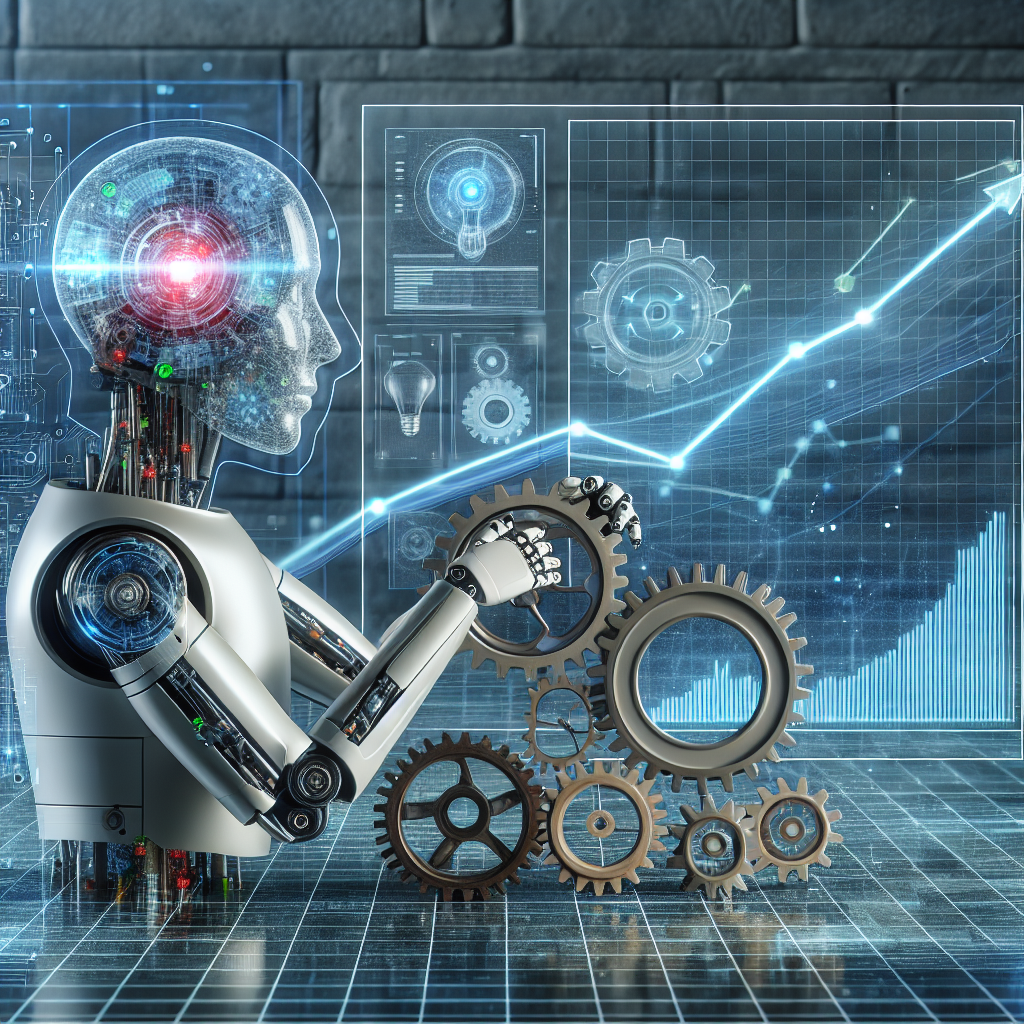Harnessing the Power of AI for Successful Project Execution
In today’s fast-paced business landscape, successful project execution is crucial for organizations to stay competitive and achieve their strategic goals. With the rapid advancement of technology, Artificial Intelligence (AI) is revolutionizing the way projects are managed and executed. AI has the potential to streamline processes, improve decision-making, and enhance overall project outcomes. In this article, we will explore how organizations can harness the power of AI to achieve successful project execution.
What is AI and How Does it Work?
AI refers to the simulation of human intelligence processes by machines, especially computer systems. These processes include learning, reasoning, and self-correction. AI systems can analyze large amounts of data, recognize patterns, and make predictions based on this information. AI technologies include machine learning, natural language processing, and neural networks.
Machine learning is a subset of AI that enables machines to learn from data without being explicitly programmed. Machine learning algorithms can identify patterns and make decisions based on these patterns. Natural language processing allows machines to understand and interpret human language, enabling communication between machines and humans. Neural networks are a type of AI model inspired by the human brain, which can learn complex patterns in data.
AI works by processing large amounts of data and identifying patterns to make predictions or decisions. AI algorithms can be trained on specific tasks, such as image recognition or natural language processing. As the AI system receives more data, it becomes more accurate and efficient at performing these tasks.
How Can AI Enhance Project Execution?
AI can enhance project execution in several ways, including:
1. Predictive Analytics: AI can analyze historical data to predict future outcomes and trends. By using predictive analytics, project managers can anticipate potential risks and plan accordingly. AI can also forecast project timelines and resource requirements, enabling organizations to make informed decisions.
2. Resource Optimization: AI can optimize resource allocation by analyzing project requirements and available resources. AI algorithms can identify the most efficient use of resources, such as manpower, equipment, and materials, to maximize project outcomes. This helps organizations reduce costs and improve productivity.
3. Risk Management: AI can identify potential risks and opportunities in project execution. By analyzing historical data and identifying patterns, AI can help project managers mitigate risks and capitalize on opportunities. AI can also provide real-time insights to project managers, enabling them to make informed decisions quickly.
4. Automated Decision-Making: AI can automate routine decision-making processes, freeing up project managers to focus on strategic tasks. AI algorithms can analyze data and make decisions based on predefined rules or patterns. This can help organizations improve decision-making speed and accuracy.
5. Task Automation: AI can automate repetitive tasks, such as data entry, scheduling, and reporting. By automating these tasks, organizations can save time and reduce human error. This allows project managers to focus on more strategic tasks that require human expertise.
6. Real-time Monitoring: AI can provide real-time monitoring of project progress and performance. By analyzing data in real-time, AI can alert project managers to deviations from the plan and recommend corrective actions. This enables organizations to address issues promptly and ensure project success.
7. Personalized Insights: AI can provide personalized insights to project managers based on their preferences and behaviors. By analyzing individual work patterns and performance data, AI can provide recommendations for improving productivity and efficiency. This enables project managers to optimize their work habits and achieve better outcomes.
FAQs
1. How can organizations implement AI for project execution?
Organizations can implement AI for project execution by first identifying their specific needs and objectives. They should then evaluate AI technologies that align with their requirements and capabilities. Organizations can start by implementing AI for specific tasks, such as predictive analytics or resource optimization, and gradually scale up their AI initiatives as they gain experience and expertise.
2. What are the challenges of implementing AI for project execution?
Some of the challenges of implementing AI for project execution include data quality, integration with existing systems, and resistance to change. Organizations need to ensure that their data is accurate and reliable to train AI algorithms effectively. They also need to integrate AI solutions with their existing systems and processes to ensure seamless operation. Resistance to change from employees and stakeholders can also be a barrier to successful AI implementation.
3. How can organizations ensure the ethical use of AI in project execution?
Organizations can ensure the ethical use of AI in project execution by establishing clear guidelines and policies for AI usage. They should ensure that AI algorithms are transparent, fair, and accountable. Organizations should also prioritize data privacy and security to protect sensitive information. Regular audits and monitoring can help organizations ensure that AI is being used ethically and responsibly.
4. What are some examples of successful AI implementations in project execution?
Some examples of successful AI implementations in project execution include:
– Predictive analytics for project risk management
– Resource optimization using AI algorithms
– Automated decision-making for project scheduling
– Real-time monitoring of project progress and performance
– Personalized insights for project managers based on their work patterns
Conclusion
AI has the potential to transform project execution by streamlining processes, improving decision-making, and enhancing overall project outcomes. By harnessing the power of AI, organizations can achieve successful project execution by leveraging predictive analytics, resource optimization, risk management, automated decision-making, task automation, real-time monitoring, and personalized insights. To successfully implement AI for project execution, organizations need to identify their specific needs, address challenges, ensure ethical use, and learn from successful AI implementations in other organizations. By embracing AI technologies, organizations can stay ahead of the competition and achieve their strategic goals with greater efficiency and effectiveness.

